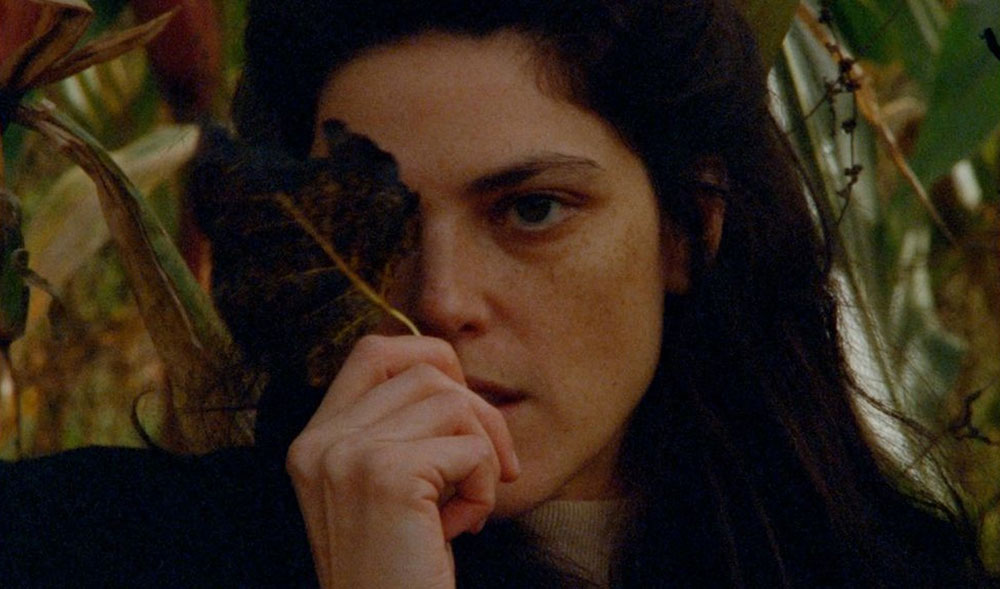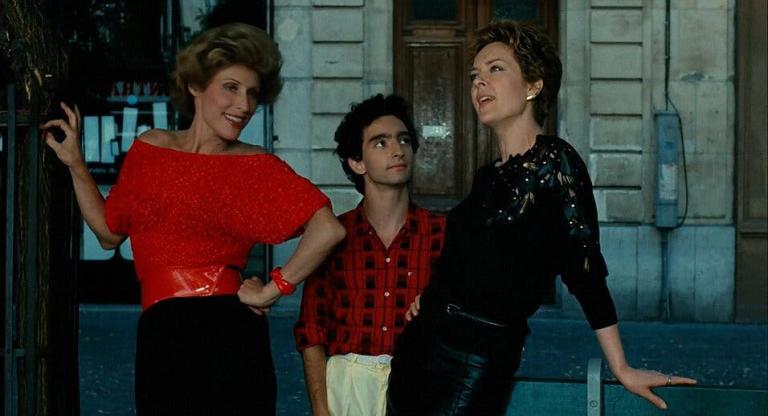A cylindrical device sits on a star-shaped platform, its pipette-shaped tubes flashing light at steady intervals. It emits a crinkly, electrical noise which bleeds into a nearby room, where Carrie (Callie Hernandez) stares pensively into space before shutting the door. The title of Courtney Stephens’s Invention (2024) alludes to both this curious gadget and the wider act of creation—invention as both a film methodology and a coping strategy.
Invention is an experimental chronicle, co-written by Stephens and Hernandez, about a young woman in the aftermath of her father’s death. As Carrie discovers, her dad, John (dubbed “Dr. J” by his followers), left her a trust fund containing a patent for an electromagnetic “healing device” recalled by the FDA that’s said to tune the vibrations within one’s body on a biophotonic level.
With a mysterious key from a safety deposit box, Carrie sets off on something of a goose chase, encountering several of Dr. J’s acquaintances, who range from quiet fanatics to total nonbelievers. Some think he was killed for his “revolutionary” work, while others cast a thin pity over his utterly normal daughter, caught up in the conspiratorial nature of his research. “You kinda had to buy into whatever he was into at the moment or else there wasn’t really a connection,” she explains.
Shot on earthy Super 16mm by Rafael Palacio Illingworth, the film’s inner narrative is then interpolated with archival footage of Hernandez’s late father in the form of interviews and advertisements, as well as audio of Stephens and Hernandez collaborating behind the scenes. This collapsing of narrative form is familiar for Stephens, whose experimental nonfiction practices tend to trace a full story rather than a compartmentalized version made within cinematic conventions.
Invention is one of two films directed by Stephens this year, alongside John Lilly and the Earth Coincidence Control Office (co-directed by Michael Almereyda). The latter also contends with the legacy of an impugned innovator, the American neuroscientist John Lilly, who elicited a similar cult-like following in his research on sensory deprivation and LSD-induced dolphin communication. (In Invention, Carrie even points out that while developing his healing technology, her father experimented on feral cats.)
What makes Invention so remarkable is how tactfully it folds bereavement into the strange intrigue of John’s legacy. As Stephens put it to Le Cinéma Club, the film is a “displacement of the real pain into fiction […] to salvage and invent in the aftermath of a big loss.” Characters are skeptical of Dr. J’s methods and the device, certainly, but never insulting. They all seem to understand that love and experimentation are both grounded in belief. And, if we understand grief as a continued belief in something absent, memory naturally becomes a kind of conspiracy.
Invention runs April 18-24 at Metrograph. Courtney Stephens and Callie Hernandez will be in attendance for Q&As following Friday and Saturday’s screenings.



